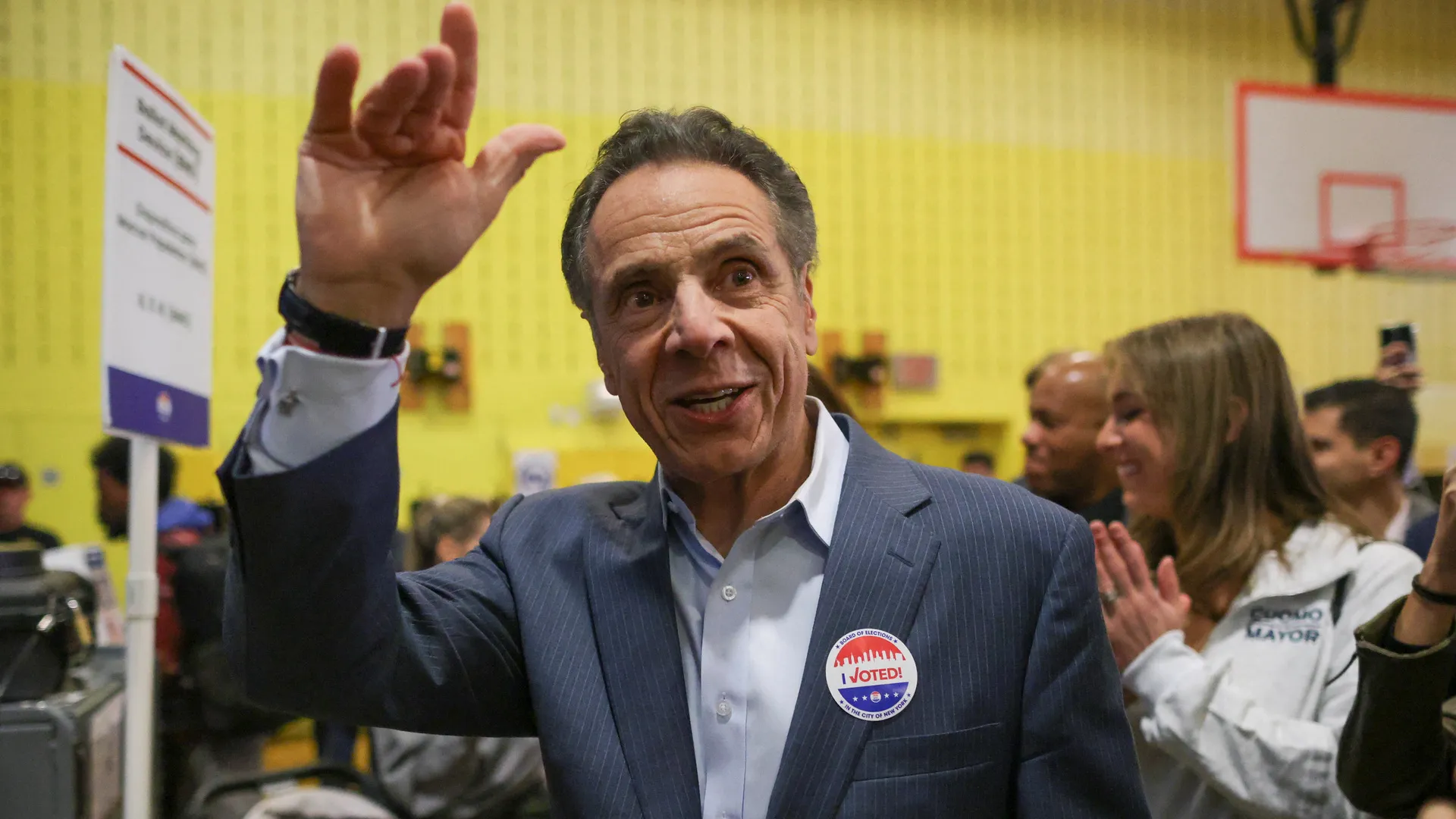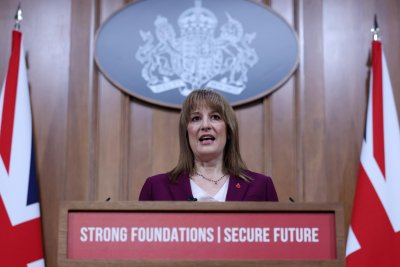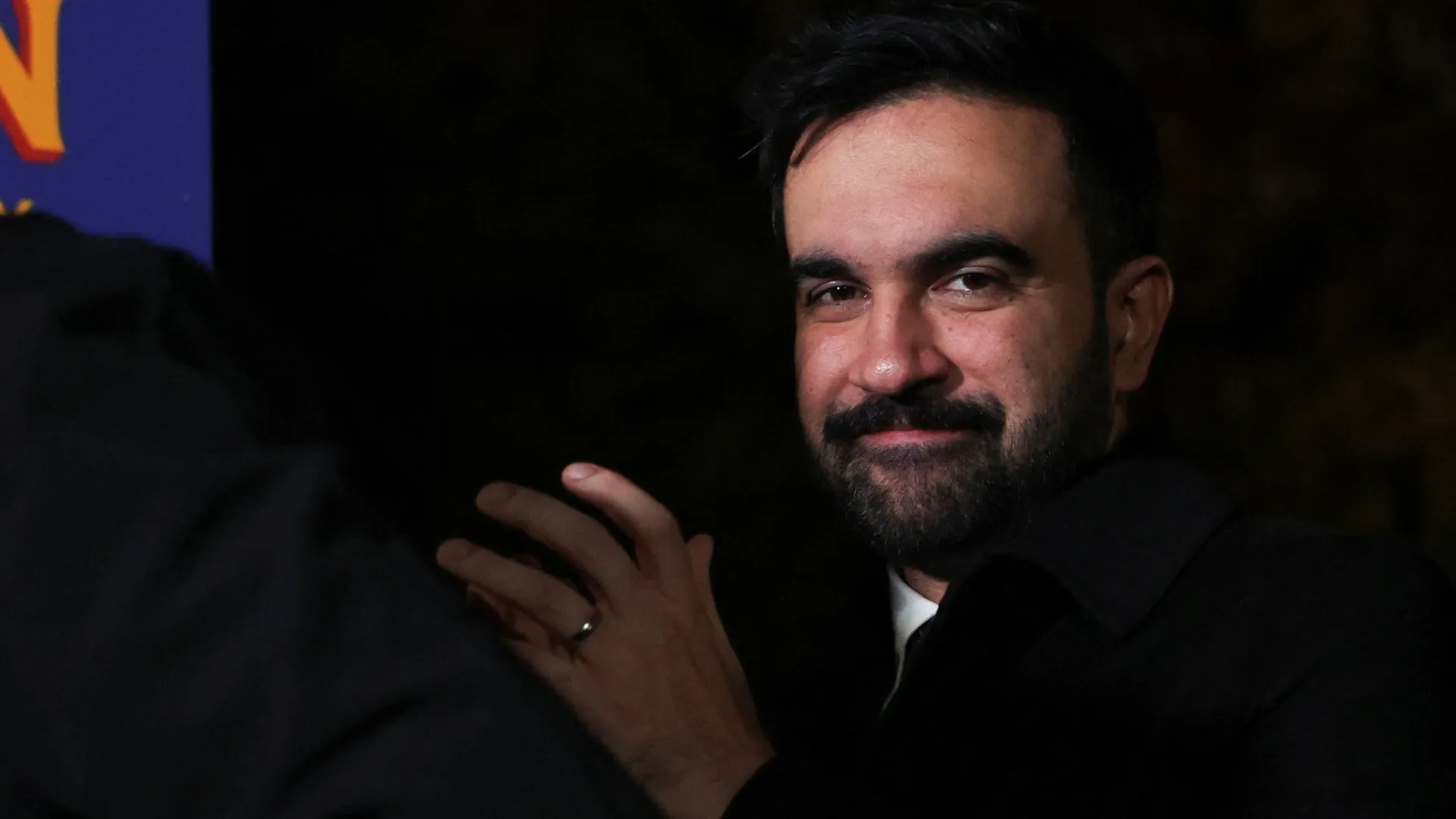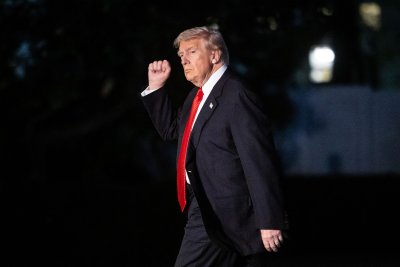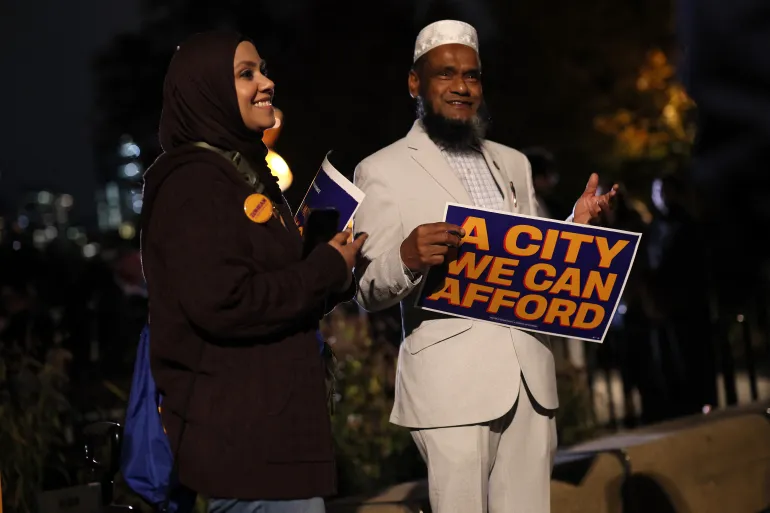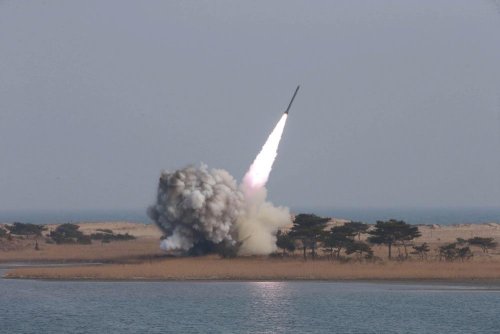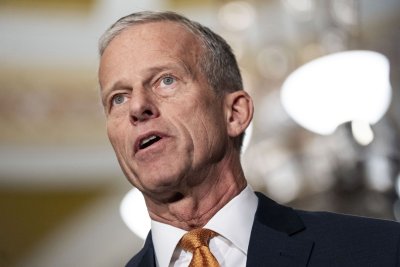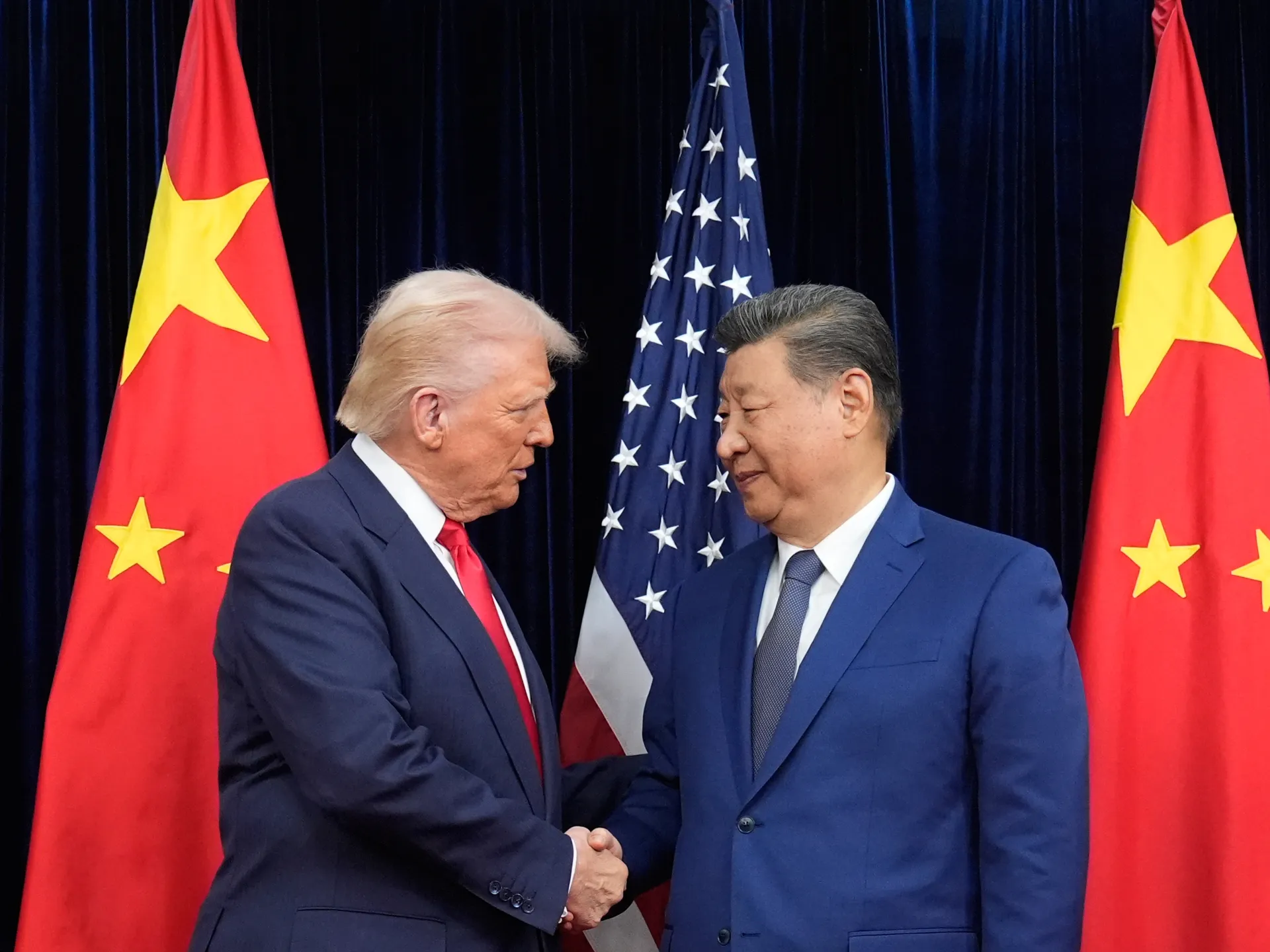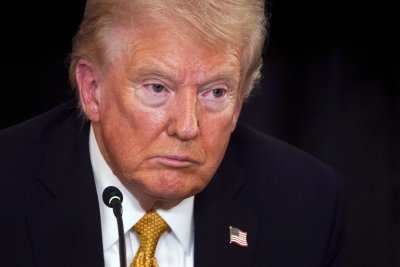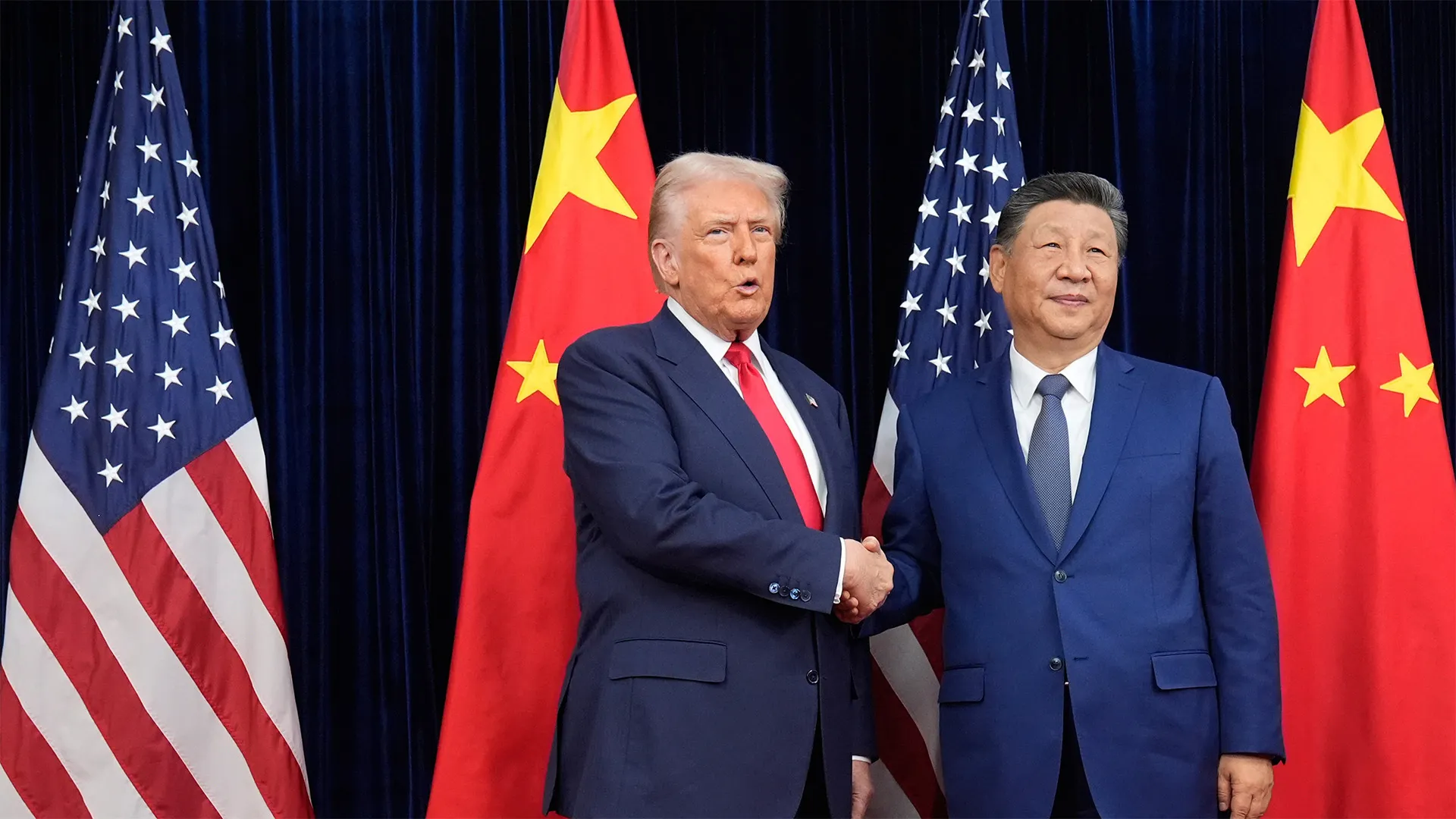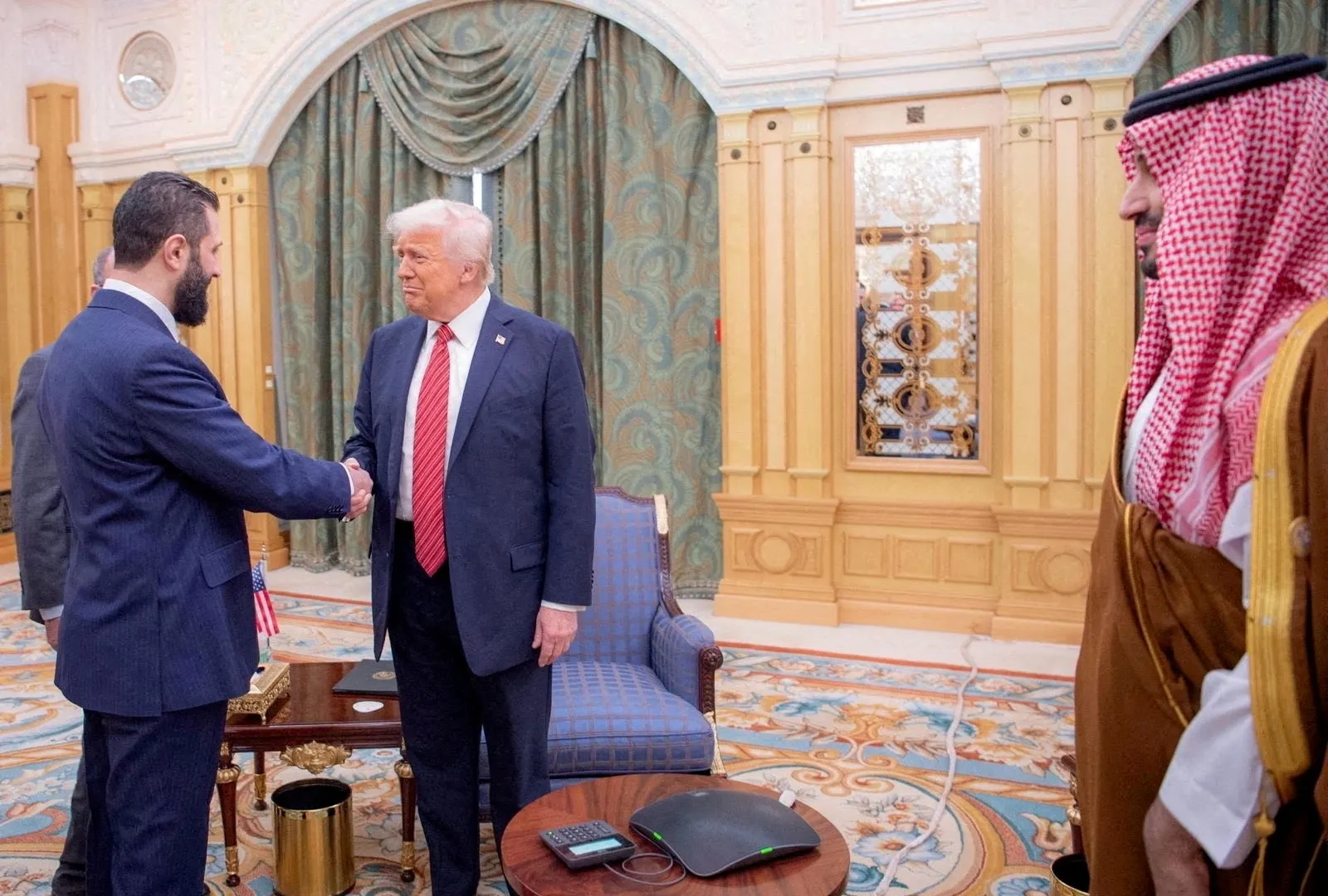Mamdani wins NYC mayoral race; Dems win N.J., Va. gubernorships

Nov. 4 (UPI) — As voters across the country headed to the polls Tuesday, Democrats running in high-profile races are on track to be sent to governor’s mansions in New Jersey and Virginia and the mayor’s office in New York City.
New York City
Zohran Mamdani was poised Tuesday night to be the next mayor of New York City, besting former New York Gov. Andrew Cuomo in a race that was closely watched nationwide, including by President Donald Trump.
Mamdani, a 34-year-old state lawmaker who ran as a democratic socialist, was projected to win the mayoral contest against Cuomo, who ran as an independent and with the last-minute backing of Trump, and Republican Curtis Sliwa, the founder of the volunteer Guardian Angels crime prevention organization.
According to preliminary results from the city’s board of elections, Mamdani held 50.3% of the vote, representing more than 972,000 ballots cast. Cuomo was in second with 41.6% and Sliwa at third with 7.1%.
Mamdani claimed victory in a short video posted to X of a subway car coming to a stop at City Hall.
The race was largely a rematch of June’s Democratic primary where Mamdani beat Cuomo for the party’s nomination in a contest that was seen as a fight between the party’s progressive and establishment wings.
Mamdani’s platform included implementing a rent freeze, making bus transit free, offering free childcare for children aged 6 weeks to 5 years and raising the corporate tax rate while taxing the wealthiest New Yorkers at a flat 2%.
Cuomo ran on his extensive experience as a former governor of the state and prioritized improving public safety, including surging subway transit police. In contrast to Mamdani, Cuomo presented himself as a business-friendly centrist who could work with Trump, who injected himself late into the race.
Trump, who endorsed Cuomo Monday, has repeatedly called Mamdani a “communist” and said if he wins, “it is highly unlikely that I will be contributing federal funds, other than the very minimum required, to my beloved first home.”
Virginia
Former U.S. Rep. Abigail Spanberger, a Democrat, claimed victory Tuesday night over Republican Lt. Gov. Winsome Earle-Sears to become the commonwealth’s 75th governor and first woman to hold its highest office.
Speaking to supporters during an election night watch party in Richmond, Spanberger vowed to serve all Virginians, including those who did not vote for her.
“And that means I will listen to you, work for you and with you,” she said.
“That is the approach I have taken throughout my entire career. I have worked with anyone and everyone regardless of political party to deliver results to the people that I serve. And that is because I believe in this idea that there is so much more that unites us as Virginians and as Americans than divides us,” she said.
“And I know — I know in my heart — we can unite for Virginia’s future and we can set an example for the rest of the nation.”
According to preliminary state results, Spanberger received 56.3% of the vote share for 1.2 million ballots compared to Earle-Sears’ 43.2%, or roughly 968,100 votes, with 107 out of 133 localities reporting.
Pennsylvania Gov. Josh Shapiro, a Democrat, was among the first to comment on Spanberger’s victory, telling Virginians that she “won’t let you down.”
“Tonight, Virginians came together to send a resounding message that folks are ready to stand up for our freedoms and fight for our future,” he said in a statement on X.
“In the face of all the chaos from Washington and the attacks on our democracy, Abigail Spanberger brought people together around a vision for a better, more affordable future for Virginia.”
Polls closed at 7 p.m. EST.
She will replace Gov. Glenn Youngkin, who was barred by Virginia’s unusual constitutional limit on governors being elected to consecutive terms.
Democrats are hoping a win by Spanberger will further cement Virginia’s blue state status ahead of next year’s midterm elections, ABC News reported.
“It is only in Virginia and New Jersey that we have statewide elections where we can prove to the rest of the country — when given, when we have an opportunity to make a change at home in our state, we will take it,” Spanberger said at a recent campaign rally.
“We know the stakes of this election, and we know what we are for. We are for a governor focused relentlessly on lower costs on housing, healthcare and energy.”
Trump, meanwhile, did not officially endorse Earle-Sears, but on Monday he urged Virginia Republicans to show up to the polls, according to The Washington Post.
“Get out and vote for these unbelievably great Republican candidates up and down the line,” he said in a telephone call with supporters.
If elected, Earle-Sears would have been the first Black woman to serve as governor in any state.
New Jersey
In New Jersey, U.S. Rep. Mikie Sherrill, a Democrat, claimed victory in a race against Republican Jack Ciattarelli, who ran in his third bid for governor.
Sherrill, speaking to supporters in East Brunswick, said her opponent conceded defeat.
“This was a tough fight and this is a tough state, but I know you, New Jersey, and I love you,” she said during her victory speech.
“I fought for you, I’ve spoken with thousands of you over the last year. I know your struggles, your hopes, I know your dreams. So serving you is worth any tough fight I have to take on and I’m incredibly honored to be your next governor.”
The traditionally blue state had a larger share of red voters than typical in the 2024 election, and Trump lost the state by 6 points, down significantly from the nearly 16 points he lost by in 2020.
Trump endorsed Ciattarelli, but didn’t campaign for him in person. Trump did take part in a telephone rally on Monday night, MSNBC reported. He also put his weight behind the Republican in multiple Truth Social posts, including one geared toward Lakewood, N.J.’s Orthodox Jewish population on Sunday.
“Your votes in this Election will save New Jersey, a State that is near and dear to my heart,” Trump wrote, saying they “will rue the day” they voted for Sherrill.
Hours into voting Tuesday, officials shut down polling stations throughout New Jersey and moved voting to new election sites after receiving bomb threats via email. Law enforcement said the threats involving polling places in Bergen, Essex, Mercer, Middlesex, Monmouth, Ocean and Passaic Counties were not credible.
Former President Barack Obama, meanwhile, campaigned in support of Sherrill, speaking at a rally in Newark on Saturday.
“If you meet this moment, if you believe change can happen, you will not just elect Mikie Sherrill as your next governor, you will not just put New Jersey on a brighter path, you will set a glorious example for this nation,” he said, according to the New Jersey Monitor.
Ballot measures
On the West Coast, Californians voted for what could be the most consequential ballot measure this year as they decide whether to adopt a new congressional map that is designed to give Democrats an edge in the midterm election. Gov. Gavin Newsom proposed the redistricting in retaliation to a new electoral map in Texas that favors Republicans.
Proposition 50 would redraw the congressional map to make five districts more Democratic-leaning, potentially neutralizing the effects of the new Texas map. Democrats across the country, including Obama, have supported Newsom’s plan as a way to counter Republican gerrymandering in predominantly red states.
“We have a chance at least to create a level playing field in the upcoming midterm elections,” Obama told Prop 50 supporters on a campaign call.
California Republicans, however, accused Democrats, themselves, of gerrymandering, with U.S. Rep. Kevin Kiley calling it a “plague on democracy,” according to ABC News.
“I think it takes power away from voters, undermines the fairness of elections and degrades representative government,” he said.
Other key races
Pennsylvania voters will vote on whether to retain three Democratic justices on the state supreme court for new 10-year terms. The court’s 5-2 Democratic majority could be at stake.
Voters in the Houston area will vote in a special election to fill the U.S. House seat for Texas’ 18th Congressional District. Rep. Sheila Jackson Lee died in 2024 and the winner of the seat in the 2024 general election, former Houston Mayor Sylvester Turner, died three months into office.
Tuesday’s race is a primary, which will eventually go into a runoff.
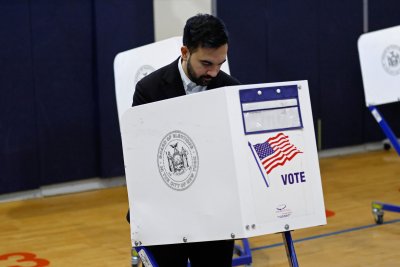




![Artemio Figuero, 59, [Joseph Stepansky/Al Jazeera]](https://i0.wp.com/www.aljazeera.com/wp-content/uploads/2025/11/Artemio-Figuero-59-1762276906.jpeg?w=640&ssl=1)




